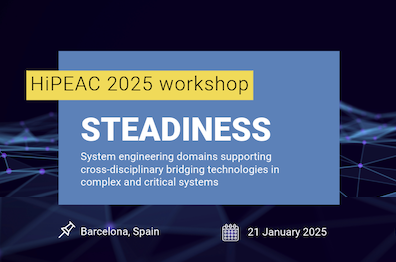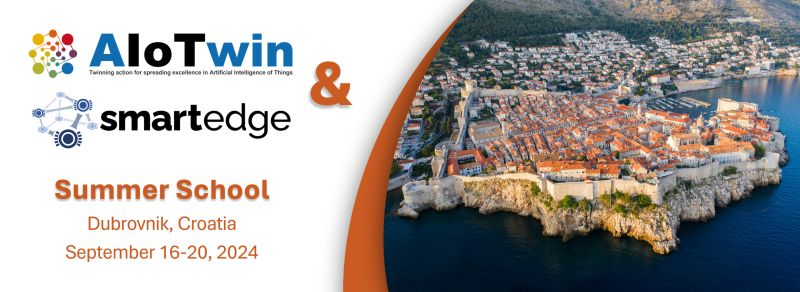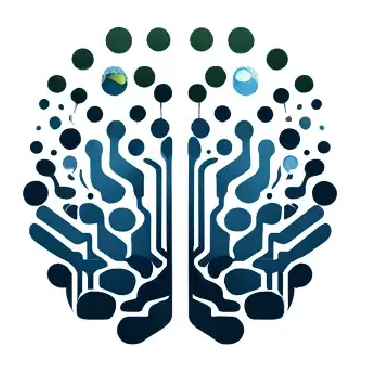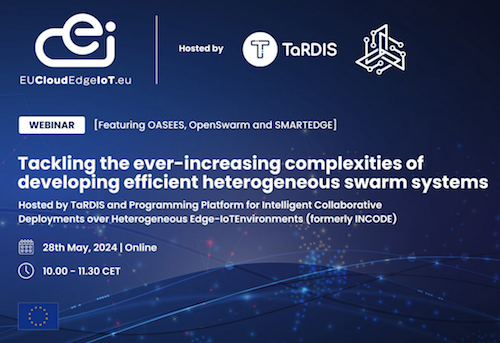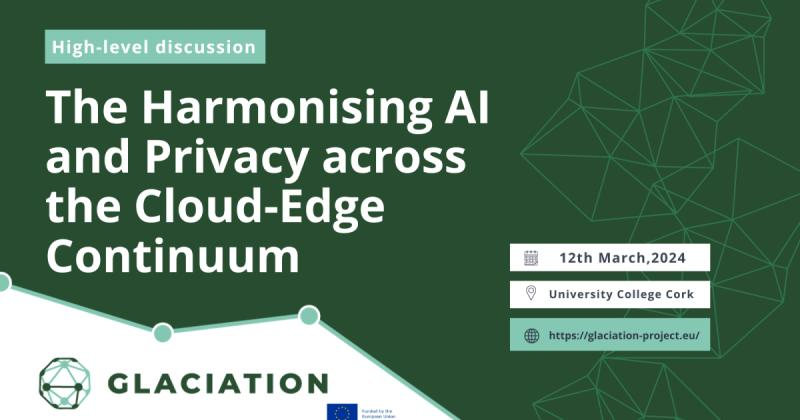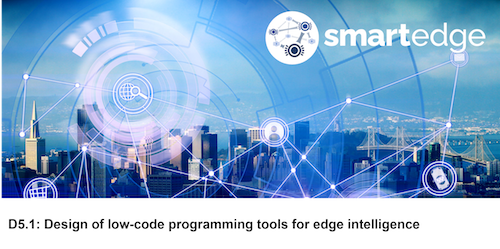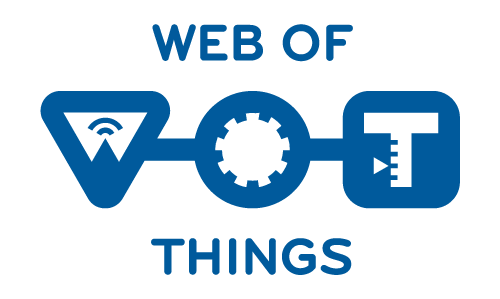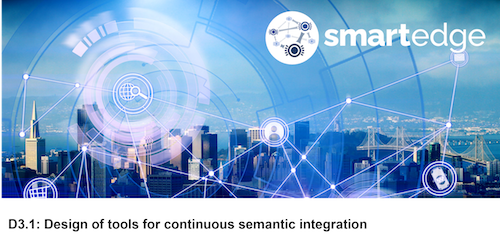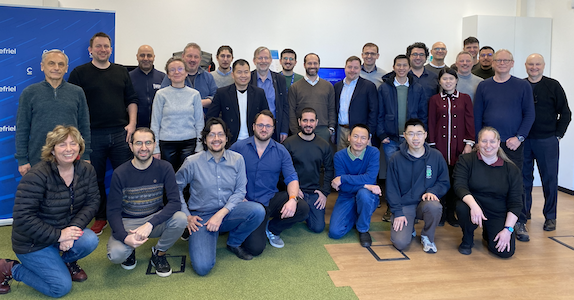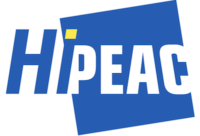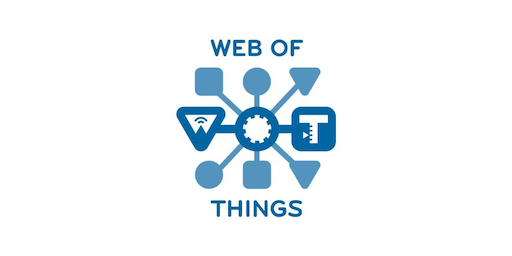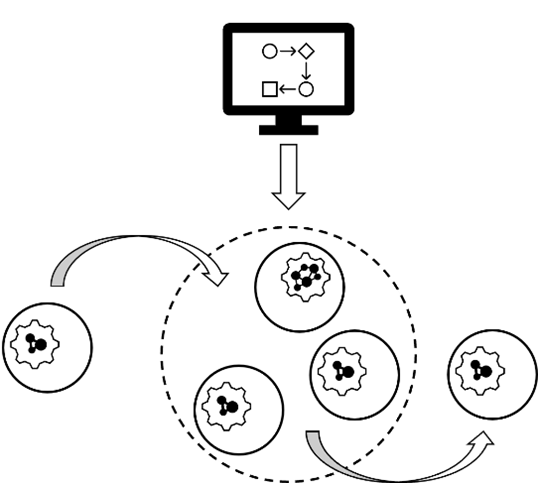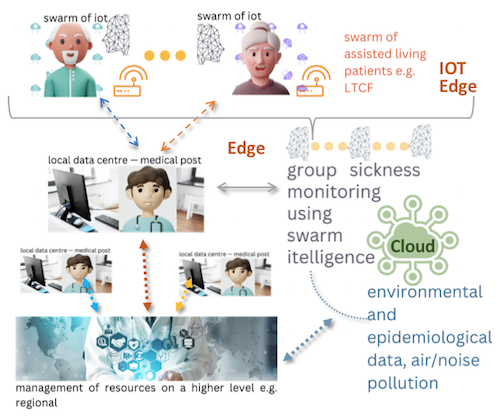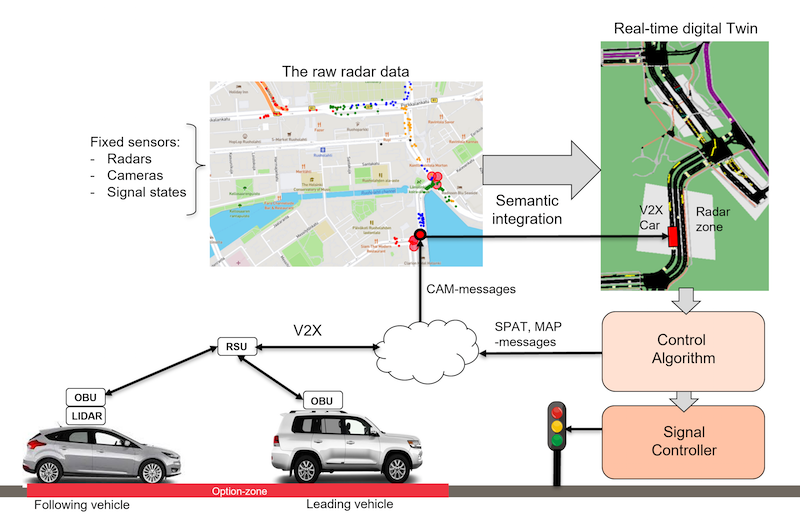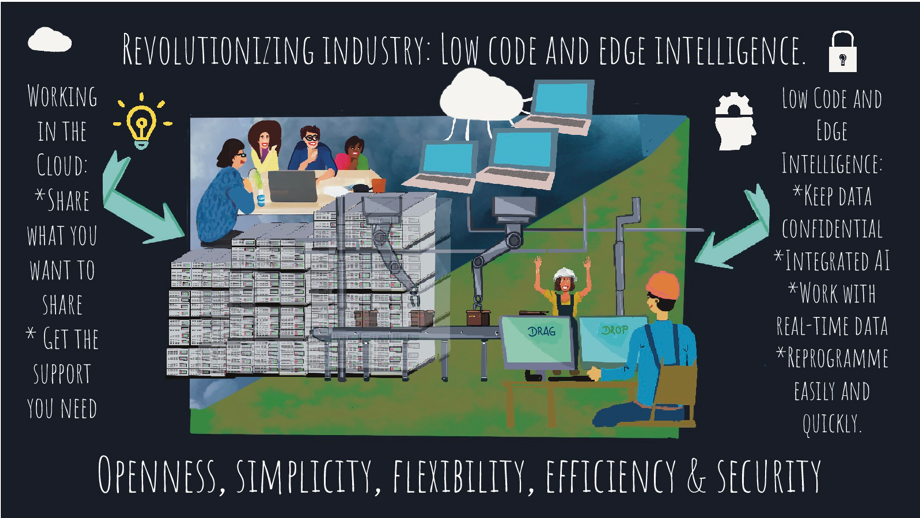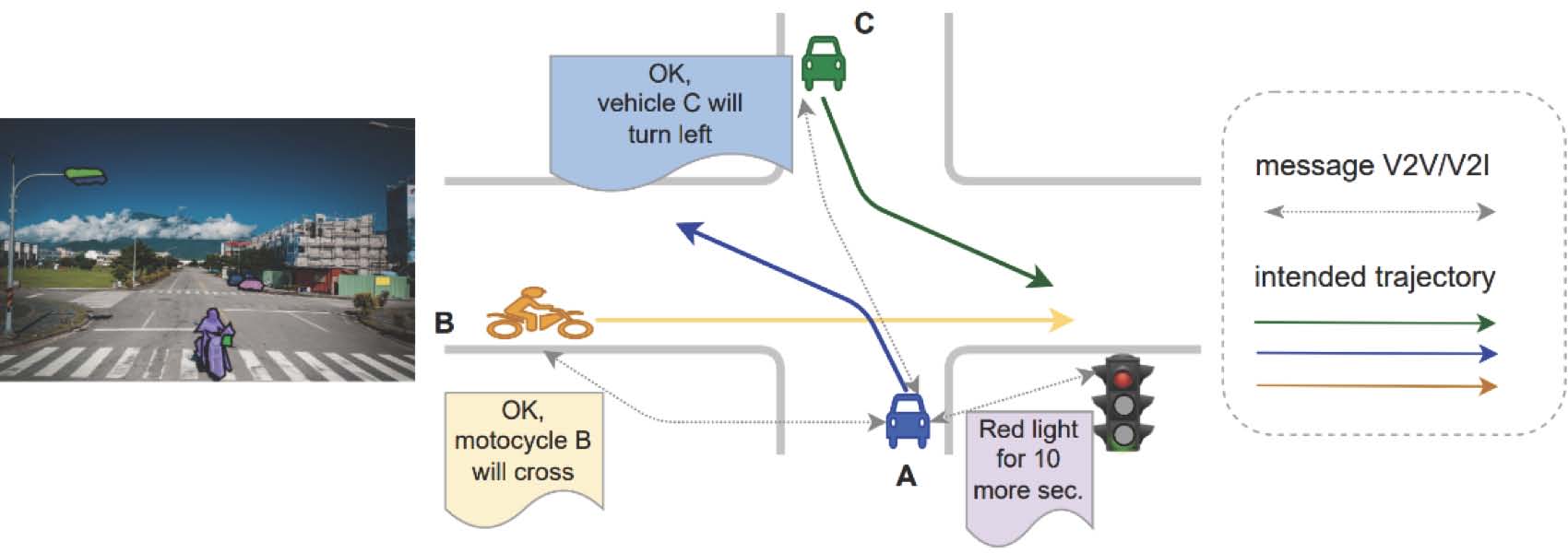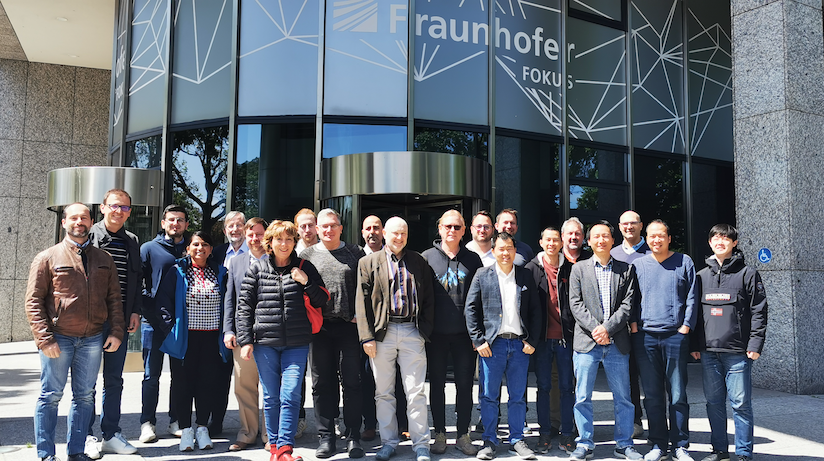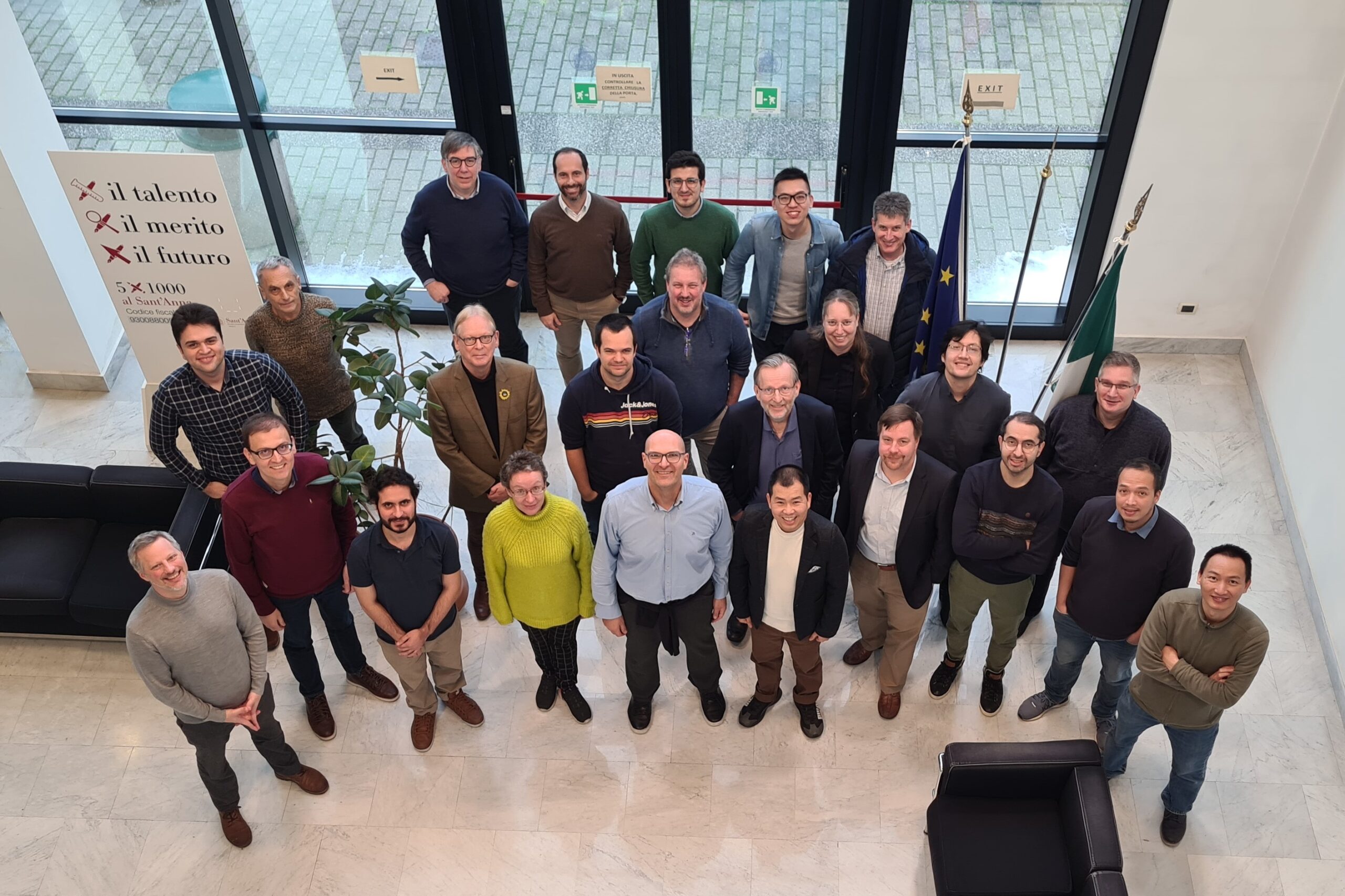Deliverable 3.3 “Final implementation of tools for Continuous Semantic Integration (CSI).” marks the finish line of intensive work in Work Package 3 (WP3), bringing us closer to IoT data integration that is seamless, smart, and intelligent.
The Edge AI Academy Summer School took place on July 7–8, 2025, in Pisa, bringing together students, researchers, and professionals for two days of intensive training in edge AI, IoT, and edge computing. The event offered participants hands-on experience and expert-led sessions on cutting-edge technologies, including RISC-V architectures and ultra-low-power processors that are shaping the future of smart IoT and edge AI systems.
Working at the edge – We’d like to highlight the upcoming 2025 Cloud-Edge Continuum Workshop (CEC’25), which will take place on September 22, 2025, in Seoul, South Korea. The workshop is co-located with the IEEE ICNP 2025 conference and will focus on the latest research and developments in the Cloud-Edge Continuum.
Edge-based swarm intelligence promises real-time navigation and coordination in everything from smart cities to autonomous vehicles—but it also brings fresh security risks. DPUAUT leverages SmartNIC-integrated Physically Unclonable Functions to deliver a lightweight, tamper-resistant authentication protocol that keeps your devices both fast and safe.
We’re excited to share updates for the upcoming SmartEdge Summer School 2025, taking place July 7–8 in Pisa, Italy, as part of the Edge AI Academy Summer School 2025.
Ever wondered how you could spot a sneaky DDoS attack before it knocks your site offline? Dive into Deliverable 4.2 to see how FTG-Net-E’s clever flow-and-traffic graphs combined with Graph Neural Networks deliver near-perfect, real-time detection.
Discover how SmartEdge uses synchronised RGB depth cameras and semantic graph fusion to provide AMRs with a shared, real-time understanding of the environment. This enables robots to avoid obstacles, dynamically reschedule and work together seamlessly – for more flexibility, safety and efficiency in the smart factory.
Imagine converting every dashcam frame into a rich, semantic traffic map in real time—SmartEdge’s Vision Scene Understanding makes it possible. Dive into how angle-based relation estimation and YOLOv9-powered detection are revolutionizing ADAS test-case generation right at the edge.
Last week, the SmartEdge EU project held a successful plenary meeting, filled with engaging discussions and insightful presentations. Here’s a brief overview of the key highlights from the event.
We are excited to announce the availability of our latest white paper, which delves into the critical discussions and insights from the TechNexus Programme’s recent workshops, FORECAST and STEADINESS, held during the HiPEAC 2025 conference in Barcelona.
We are excited to announce the 1st workshop on Federated Learning for Wireless Edge AI (FedEdgeAI), which will be held in conjunction with the IEEE ICDCS 2025 conference in Glasgow, Scotland, from July 20th to July 23rd, 2025.
SmartEdge’s introduces a P4-programmable network layer that automates device discovery, secure subnet (“swarm”) formation, and dynamic reconfiguration in industrial and edge environments. Recipe-based orchestration, combined with Access Point and Swarm Coordinator modules, enables seamless node onboarding, controlled or unexpected exits, and priority-aware data flows. Early tests confirm the solution’s efficiency, resilience, and real-world applicability.
The AIOTI Workshop on Semantic Interoperability for Digital Twins is happening at the Centre Inria d’Université Côte d’Azur, France. This two-day event attracted almost 50 participants – industry professionals and researchers who are passionate about advancing the field of semantic interoperability.
Explore how smart edge technology is transforming traffic management, digital rehabilitation, and manufacturing. Three YouTube tutorial videos showcase innovative solutions from experts, emphasizing the groundbreaking impact of these advancements on cities, healthcare, and industry.
We’re excited to announce the release of Deliverable D5.2, marking a significant milestone in the SmartEdge project. This deliverable provides a report on the first implementation and revised design of low-code programming tools for Edge Intelligence, building upon the design outlined in Deliverable D5.1.
The workshop program is live! Co-chaired by Danh Le Phuoc, SmartEdge’s scientific coordinator, the STEADINESS workshop explores system engineering domains supporting cross-disciplinary bridging technologies in complex and critical systems.
We are pleased to announce the release of Deliverable 4.2, representing the second iteration of our Dynamic Swarm Networking technical Work Package. This deliverable is a critical step towards enhancing the networking layer of the SmartEdge project, focusing on high-performance and low-latency operations through innovative, network-programmability solutions.
Slash the time and cost for developing your swarm applications using simple descriptions of real-time behaviour layering on top of digital twins as abstractions for devices and processes. This article describes work being done in the SmartEdge project to support Use Case 3 (smart manufacturing).
We are excited to announce the release of Deliverable D3.2, which details the final design and initial implementation of tools for Continuous Semantic Integration (CSI) within the SmartEdge project. This deliverable builds upon the design activities reported in D3.1 and incorporates the final requirements defined in D2.2, offering a comprehensive framework to enable CSI.
Deadline extended! Submit your expression of interest before 20 December! Contribute to the development of standards and best practices that shape the future of open web ecosystems targeting real-world industrial challenges.
The SmartEdge project is holding its plenary meeting on 9 and 10 October 2024 at the Inria Centre at Université Côte d’Azur premises in France, hosted by ERCIM/W3C.
As part of the HIPEAC 2025 conference, the call for presentations for the STEADINESS workshop is now open! Please submit your presentation by 22 November 2024 (The submission deadline has been extended!) This workshop seeks theoretical as well as practical contributions in the area of complex and critical systems.
On September 5, 2024, several members of the EUCloudEdgeIoT community met for a workshop organized by the European Commission to discuss results of the Swarm Intelligence cluster of projects, namely INCODE, TaRDIS, OASEES, OpenSwarm and SMARTEDGE. SmartEdge contributed by showcasing its innovative use of swarm intelligence in three key areas: traffic management, smart factories and standardization.
We are proud to announce that the “low-code engineering toolchain for edge intelligence,” developed by Siemens, Dell Technologies (EMC) and Technical University Berlin (TUB) under the SmartEdge project, has been featured by the EU Innovation Radar. Labeled “Market Ready”, this recognition marks a significant milestone for SmartEdge.
We are excited to hold our first summer school in collaboration with the AIoTwin project from September 16-20, 2024. Want to know more about EdgeAI and Swarm Intelligence? We have 9 tutorials and 3 keynotes for you!! Registration is open.
As part of the SmartEdge & AIoTwin Summer School, the “Edge AI meets Swarm Intelligence” workshop will take place held on September, 18, 2024, in Dubrovnik, Croatia. The deadline for abstract submissions has been extended to June 29, with full submissions due by July 5, 2024.
During the FOKUS Media Web Symposium 2024, SmarEdge parners presented the enabling technology for the virtualization environment for “Cooperative perception for driving assistance” (Use Case #1), the edge rendering artifact.
SmartEdge’s project an scientific coordinators, Filippo Cugini and Danh Le Phuoc, are invited to participate in the DISCOVER-US vision workshop in Saubadia, 24-26 June 2024. The workshop will produce a white paper on short-term and mid-term research challenges in Distributed Computing and Swarm Intelligence.
The CEC’24 workshop will be held on October 28, 2024 and is organized and co-located with IEEE ICNP’24 conference. Accepted papers will be published in IEEE proceedings. We welcome submissions before 15 July 2024! This workshop is co-organized by the SmartEdge project.
Register to the “Tackling the ever-increasing complexities of developing efficient heterogeneous swarm systems“ webinar! On 28 May 2024, from 10:00 to 11:30 am CET. EU-funded swarm computing projects (TaRDIS, OASEES, SmartEdge, OpenSwarm, INCODE) will exhibit their breakthroughs in distributed computing technologies and platforms, advances in the application of AI/ML concepts in the swarm technology, and more.
As part of the SmartEdge & AIoTwin Summer School, the “Edge AI meets Swarm Intelligence” technical workshop will be held on 18 September 2024, in Dubrovnik, Croatia. We encourage the submission of original research, ongoing projects, and proof of concepts that explore fresh ideas and introduce innovative directions in the fields of edge and swarm AI.
No more limits to traditional physiotherapy! SmartEdge introduces a groundbreaking solution that breaks free from closed ecosystems and subjective assessments. Our innovative approach ensures precise evaluation and timely feedback, transforming the way pain, muscular resistance, and treatment progress are monitored.
Mark your calendar! The culminating event of the EUCloudEdgeIoT’s Open Continuum CSA is set to take place in Brussels on June 18, 2024. Don’t miss out!
In this brief DISCOVER-US webinar on 24 April, discover how the project partners facilitate device interaction via a standardized semantic interface, implement swarm networking capabilities. Finally, witness the technology demonstrated within a smart healthcare scenario!
SmartEdge marks its first anniversary with advancements in edge computing and Internet of Things (IoT) integration. Over the past year, the initiative has been developing innovative tools and methodologies to facilitate the construction of edge intelligence solutions. Read the press release.
SmartEdge is happy to be part of the “Harmonising AI and privacy across the Cloud-Edge Continuum (CEC)” conference, organized by the Glaciation project. Participants have the chance to listen to experts who will discuss how to advance AI technologies while protecting personal privacy, a crucial issue as AI becomes more widespread in various domains.
The W3C Breakouts Day 2024 agenda is now available! Please join these 1-hour long sessions and give your input! Anyone with a W3C account (including non-Members) can participate. No fee or registration is required. Among the 21 sessions, two of them are related to the Web of Things.
SmartEdge’s primary goal is to provide an comprehensive toolchain that simplifies the process of building edge intelligence. By leveraging semantic descriptions of sensing and computing capabilities, along with data queries, the SmartEdge toolchain strives to detach application logic from the intricate layers of software, hardware, and networking components.
During 2023, noteworthy milestones were reached within the W3C Web of Things (WoT) and its related activities, with participation from SmarEdge’s partners. The WoT 1.1 normative specifications have been officially published as W3C Web standards. Concurrently, efforts have commenced on the development of the 2.0 specifications.
The diversity and changing nature of IoT devices present substantial challenges for data integration and application development. The SmartEdge project has introduced Continuous Semantic Integration (CSI), an advancement aimed at enhancing edge intelligence by creating standardized semantic interfaces that act as a unified access point to IoT device data, enriched with semantic metadata and based on well-established standards.
In the rapidly advancing domain of digital and network technologies, the Dynamic and Secure Swarm Networking Work Package (WP4), within the SmartEdge project, seeks to address the challenges of automatic discovery, dynamic network swarm formation, embedded network security and isolation, and hardware-accelerated in-network operations.
The 3rd plenary meeting of the SmartEdge project was held on 16-17 January 2024, in Milano, Italy, hosted by Cefriel. About 30 experts from the consortium partners gathered to discuss the advancements of SmartEdge after its first year.
The nineteenth edition of the HiPEAC conference, the network’s flagship networking event, takes place on 17-19 January 2024 in Munich, Germany. Danh Le Phuoc (Technical University of Berlin) and Spyros Lalis (University of Thessaly) co-chair one of the conference workshops: “ENHANCE: Enabling Technologies and Dependability in Cyber-Physical Systems“. This workshop is supported by the projects MLSysOps, SMARTEDGE and the TRANSACT projects.
In traditional Internet of Things (IoT) projects, developers grapple with the complexity of diverse systems and services from different vendors, hindering flexibility and interoperability. Customers want to be able to choose devices from multiple vendors without redesign. The W3C Web of Things (WoT) simplifies IoT application development by offering standardized building blocks. The WoT uses web technology to harmonize access to diverse IoT devices and breaks silo walls. This allows
As part of the SmartEdge project, we are developing swarms of autonomous mobile robots and smart edge devices that can adapt themselves to dynamically changing environments while collaborating with each other to achieve common goals.
Imagine a nursing home where every resident has own personal intelligent health assistant that receives health data from cutting-edge wearable devices tracking health biomarkers, vital signs, physical activity 24/7. Interconnected to each other and facility system, these health assistants create a swarm providing comprehensive health assessment of many patients in real-time. This project demonstrates that advanced health monitoring of individual and collective health status can help identify trends and problems
Rear-end collisions are a major road safety problem, particularly at intersections with traffic lights. Using swarm intelligence, Aalto University and Conveqs Oy are introducing a new approach to tackle the problem through connected and cooperative traffic management that deploys the technologies provided by the SmartEdge project. It has been measured that around 30% of accidents at intersections with traffic lights are rear-end collisions. The dangerous moment comes when the green
By combining Low-Code and Edge Intelligence, manufacturing sites can establish and upgrade flexible production capabilities. This innovative approach empowers the industry to adapt quickly, achieve individualized production, and stay ahead in the evolving manufacturing landscape. The future of manufacturing is here with SmartEdge’s transformative technologies. In the future of manufacturing, the focus is shifting towards producing small series of highly individualized products, replacing large-scale specialized factories. To meet the challenges
In the rapidly evolving field of automated driving, the SmartEdge project is at the forefront of developing cutting-edge technologies for test case generation. By integrating predefined knowledge with real-time traffic situations, SmartEdge aims to enhance the quality, completeness, and consistency of test cases. This blog post highlights the challenges of creating test cases for Advanced Driver-Assistance Systems (ADAS) and introduces the innovative approach proposed by SmartEdge. Challenges in ADAS Test
The SmartEdge project plenary meeting took place at the Fraunhofer Institute for Open Communication Systems (FOKUS) in Berlin on 16 and 17 May 2023. The gathering brought together leading experts and researchers from various institutions to discuss and shape the future of edge computing. With the potential to revolutionize industries and unlock new possibilities, the SmartEdge project aims to pave the way for efficient and intelligent edge computing solutions, demonstrated
Kick-off meeting in Pisa, Italy














